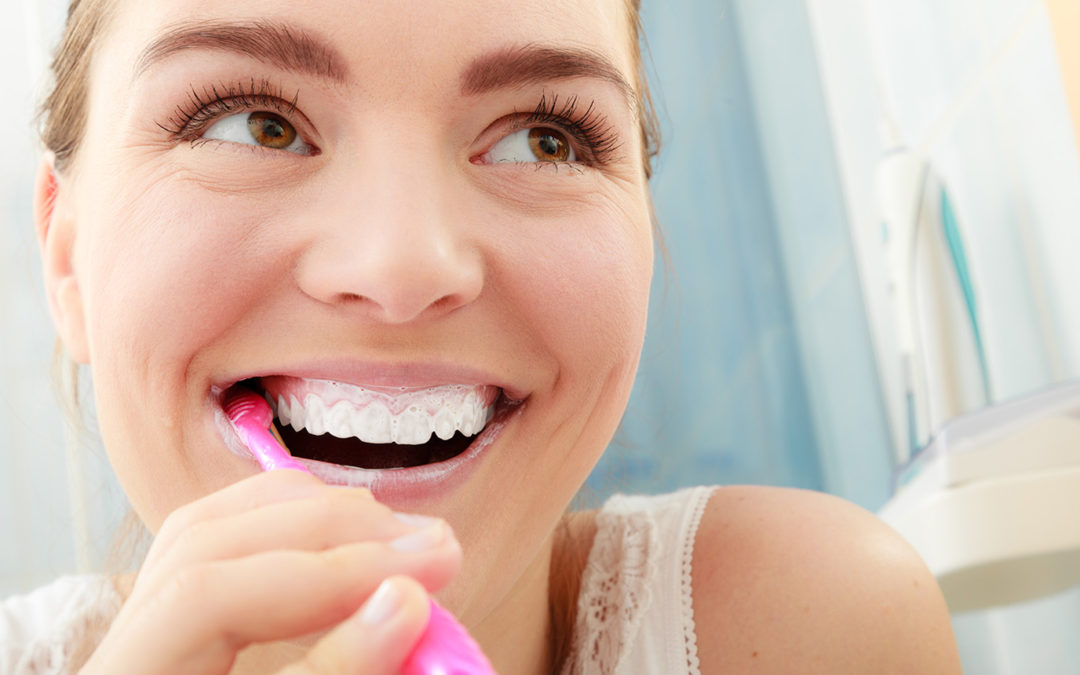Quiz: How Well Are You Brushing Your Teeth?
You may not visit the dentist as often as you should. You might chew on ice or eat acidic foods that are bad for your teeth. But if you care enough to read our blog, you’re doing at least one great thing for your oral health: brushing daily. When it comes to brushing your teeth, what matters is not what type of toothbrush or toothpaste you use. It matters that you brush often enough and well enough to keep your choppers shiny and free from harmful bacteria. Take the quiz below to see How Well Are You Brushing Your Teeth!
Analyze your brushing technique and find out how to improve with the quiz below.
1. How frequently do you brush your teeth?
- Twice a day—in the morning and in the evening.
- Four to five times a day. You can never get your teeth too clean!
- Once in the morning.
Best Answer: A. Truthfully, best practice is to brush three times a day, once after each major meal. But if you have a busy lifestyle and don’t have the time to pull out your toothbrush in the middle of a workday, brush morning and night. Wait at least 20 minutes after you eat before brushing. Your saliva can remove some food particles and acid before you spread them around your mouth.
Brushing too often can be just as dangerous as not brushing enough. You can wear down the enamel, the visible layer of your tooth, or cause your gums to recede.
2. How long do you spend brushing your teeth at a time?
- However long it takes to go over each tooth
- Four minutes
- Two minutes
Best Answer: C. Spend at least two minutes brushing your teeth. No one will penalize you if you are still holding your toothbrush after 120 seconds, but as we explained before, you risk sore or receding gums and wearing enamel. If you have trouble keeping track of time, spend 30 seconds on each section of your mouth. For kids (or similarly impatient adults), you can also find a smartphone app like Brush DJ that plays music or takes you through a game for those two minutes.
3. How do you know when to change your toothbrush?
- When I’ve been using the toothbrush for two months
- When the bristles start to break, fray, or flatten
- When I’ve broken the toothbrush
Best Answer: B. Dentists recommend that you change your toothbrush approximately every three months. However, you should replace your toothbrush sooner if you notice the bristles breaking down since they will be less effective at cleaning. Don’t let your toothbrush go much longer than three months—even if the bristles are strong; they could trap bacteria and fungus over time.
You should also replace your brush if you have been sick with an infection, a sore throat, a cold or the flu. Germs can linger and get you sick all over again.
4. How would you describe your technique for brushing?
- Powerful strokes from side to side
- Short, light strokes up and down
- Light strokes from side to side
Best Answer: B. You don’t have to do a lot to remove plaque from your teeth. Use a light touch; your toothbrush’s bristles shouldn’t even bend much. If you use an electric toothbrush, you can just guide the bristles across your teeth. Brush up and down rather than side to side to avoid scraping your gums.
5. Which signs do you watch for when you brush your teeth?
- Red, swollen, bleeding, or sensitive gums
- Constant bad breath
- Bleeding or open sores
- Numbness or tingling
- Small lumps or thick patches on your gums, your tongue, the inside of your cheeks, or the floor or roof of your mouth
- All of the above
Best Answer: F. As part of your daily brushing routine, you should also check your mouth for these problems. The symptoms in A and B are signs of gum disease. The symptoms in C, D, and E are signs of oral cancer. If you notice any of these signs, schedule an appointment with your dentist as soon as possible.
6. What do you do with your toothbrush when you aren’t using it?
- Stick it in the same case that I use when I travel
- Leave it on the bathroom counter
- Let it air-dry stored upright in a holder
Best Answer: C. If you put your toothbrush in a case immediately, it will stay damp and could grow bacteria. And who knows what sort of germs could be on your bathroom counter. Instead, rinse out your toothbrush with hot water and leave it in a holder to dry.
If your responses do’t always match up with the “best answer,” use these suggestions and improve the way you brush your teeth. Talk to your dentist during your regularly scheduled cleanings for a personal recommendation or if you have questions about how well are you brushing your teeth.

